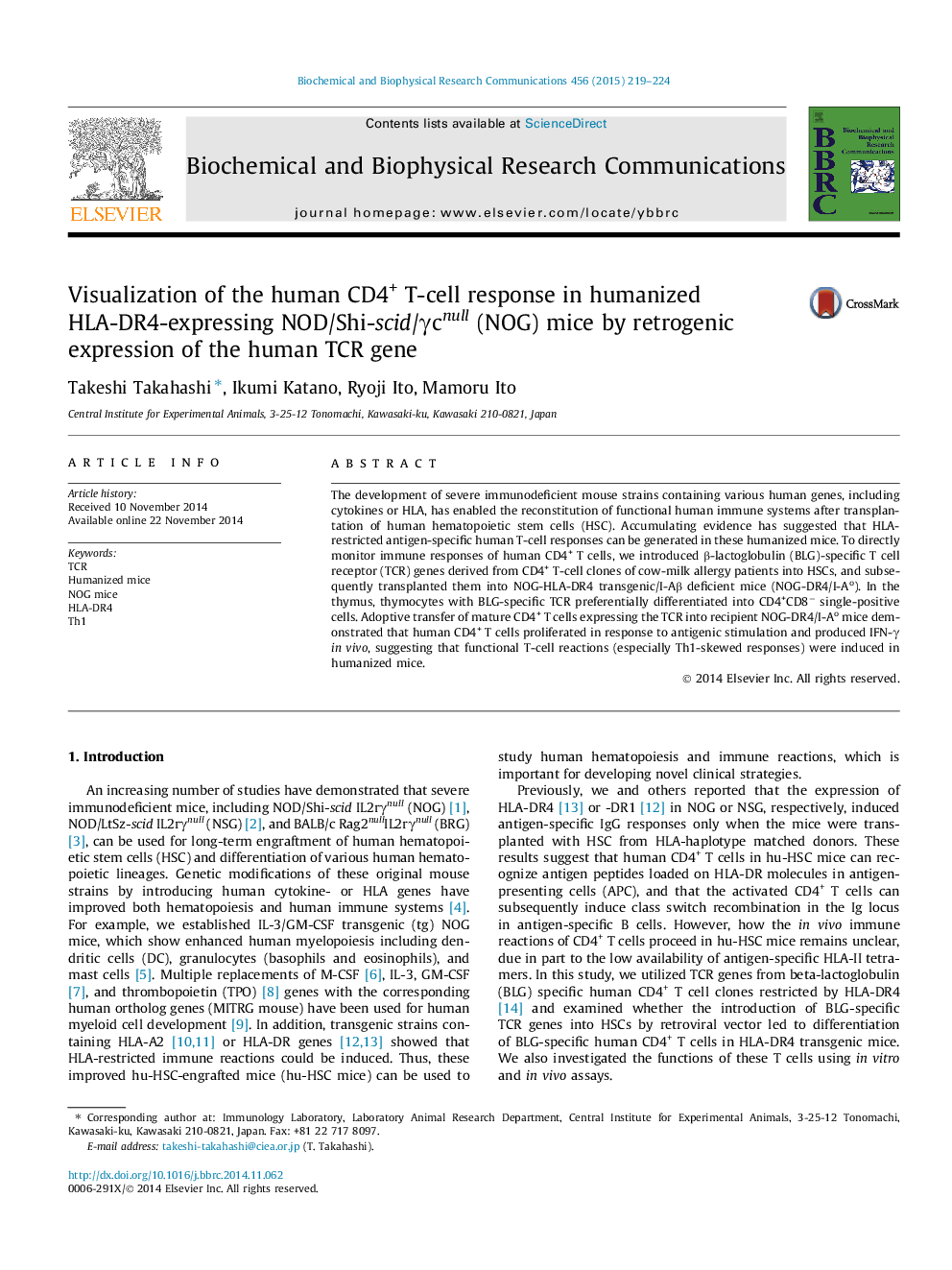| Article ID | Journal | Published Year | Pages | File Type |
|---|---|---|---|---|
| 10753594 | Biochemical and Biophysical Research Communications | 2015 | 6 Pages |
Abstract
The development of severe immunodeficient mouse strains containing various human genes, including cytokines or HLA, has enabled the reconstitution of functional human immune systems after transplantation of human hematopoietic stem cells (HSC). Accumulating evidence has suggested that HLA-restricted antigen-specific human T-cell responses can be generated in these humanized mice. To directly monitor immune responses of human CD4+ T cells, we introduced β-lactoglobulin (BLG)-specific T cell receptor (TCR) genes derived from CD4+ T-cell clones of cow-milk allergy patients into HSCs, and subsequently transplanted them into NOG-HLA-DR4 transgenic/I-Aβ deficient mice (NOG-DR4/I-Ao). In the thymus, thymocytes with BLG-specific TCR preferentially differentiated into CD4+CD8â single-positive cells. Adoptive transfer of mature CD4+ T cells expressing the TCR into recipient NOG-DR4/I-Ao mice demonstrated that human CD4+ T cells proliferated in response to antigenic stimulation and produced IFN-γ in vivo, suggesting that functional T-cell reactions (especially Th1-skewed responses) were induced in humanized mice.
Keywords
Related Topics
Life Sciences
Biochemistry, Genetics and Molecular Biology
Biochemistry
Authors
Takeshi Takahashi, Ikumi Katano, Ryoji Ito, Mamoru Ito,
